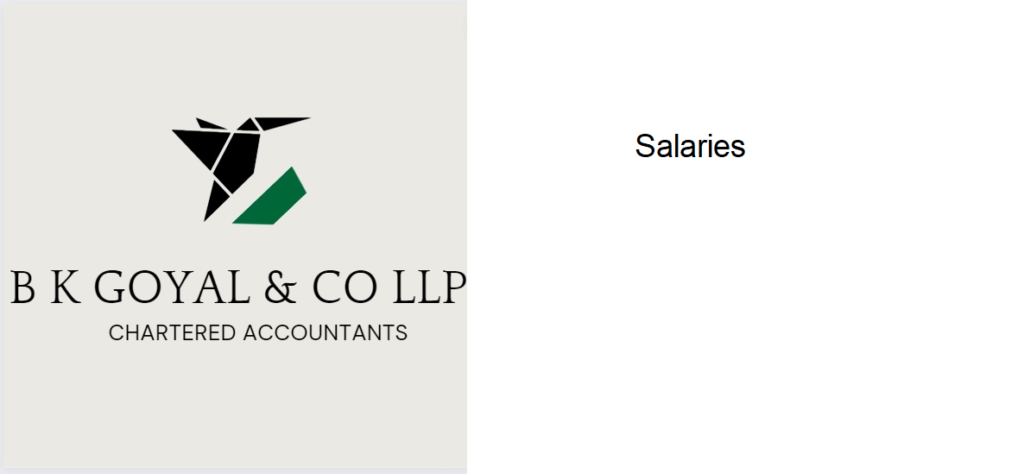Salaries are an indispensable source of income for many individuals and are subject to taxation according to Section 15 of the Income Tax Act. This section lays out the various constituents of a salary and their associated tax implications.
Section 17 of the Income Tax Act defines salary as any remuneration received by an individual for rendering services as an employee. The different components of a salary include basic salary, dearness allowance, house rent allowance, bonus, commission, and other allowances or perks.
The basic salary is the fixed portion of the salary and forms a significant part of the total income. It is taxed at the usual rates applicable to the individual. All other salary components are calculated based on the basic salary.
The dearness allowance is a percentage of the basic salary paid to employees to compensate for the increased cost of living. It is subject to tax at the regular rates applicable to the individual.
The house rent allowance (HRA) is an allowance paid to employees to cover their rent expenses. It is typically a percentage of the basic salary and is tax-deductible based on specific conditions. The deduction for HRA is computed as the lower of the actual HRA received, 50% of the basic salary for those residing in metropolitan cities, or 40% of the basic salary for those living in non-metropolitan cities. Moreover, the deduction is calculated as the actual rent paid minus 10% of the basic salary.
Bonus is an extra payment made to employees as a reward for their performance. It is usually paid yearly or bi-annually and is subject to tax at the standard rates applicable to the individual.
Commission is a payment made to employees who work on a commission basis. It is generally a percentage of the sales generated by the employee and is taxed at the regular rates applicable to the individual.
Other allowances and perquisites include any additional payments made to employees beyond their basic salary. These could be medical allowances, travel allowances, or similar payments. Such payments are also subject to tax at the regular rates applicable to the individual.
To summarize, Section 15 of the Income Tax Act provides an exhaustive framework for taxing salaries. It is imperative for employees to comprehend the various components of their salary and their respective tax implications. This knowledge will enable individuals to manage their finances better and ensure compliance with tax laws in the country.
section 15 of Income Tax Act, 1961
The following income shall be chargeable to income-tax under the head “Salaries”—
(a) any salary due from an employer or a former employer to an assessee in the previous year, whether paid or not;
(b) any salary paid or allowed to him in the previous year by or on behalf of an employer or a former employer though not due or before it became due to him;
(c) any arrears of salary paid or allowed to him in the previous year by or on behalf of an employer or a former employer, if not charged to income-tax for any earlier previous year.
Explanation 1.—For the removal of doubts, it is hereby declared that where any salary paid in advance is included in the total income of any person for any previous year it shall not be included again in the total income of the person when the salary becomes due.
Explanation 2.—Any salary, bonus, commission or remuneration, by whatever name called, due to, or received by, a partner of a firm from the firm shall not be regarded as “salary” for the purposes of this section.
Services of B K Goyal & Co LLP
Income Tax Return Filing | Income Tax Appeal | Income Tax Notice | GST Registration | GST Return Filing | FSSAI Registration | Company Registration | Company Audit | Company Annual Compliance | Income Tax Audit | Nidhi Company Registration| LLP Registration | Accounting in India | NGO Registration | NGO Audit | ESG | BRSR | Private Security Agency | Udyam Registration | Trademark Registration | Copyright Registration | Patent Registration | Import Export Code | Forensic Accounting and Fraud Detection | Section 8 Company | Foreign Company | 80G and 12A Certificate | FCRA Registration |DGGI Cases | Scrutiny Cases | Income Escapement Cases | Search & Seizure | CIT Appeal | ITAT Appeal | Auditors | Internal Audit | Financial Audit | Process Audit | IEC Code | CA Certification | Income Tax Penalty Notice u/s 271(1)(c) | Income Tax Notice u/s 142(1) | Income Tax Notice u/s 144 |Income Tax Notice u/s 148 | Income Tax Demand Notice
